Both BMW and Nissan are preparing their Mexican networks for changes in market demand, with BMW set to begin producing EVs using its battery manufacturing facility next to its San Luis Potosi assembly plant, and Nissan upping its skills in the supply chain to cater to fluctuations in demand from consumers.
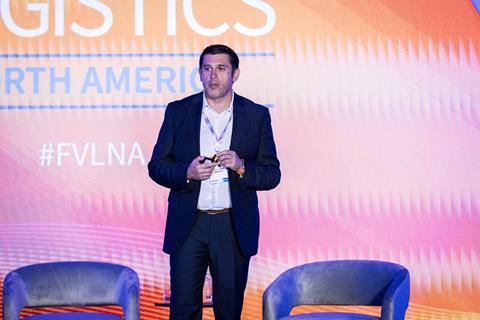
Mexico is the fifth largest vehicle exporter in the world, and the fourth largest exporter of automotive parts, so it’s no wonder that OEMs are increasingly looking to the country to establish supply chain networks there. But BMW and Nissan are both ahead of the curve, as Finished Vehicle Logistics North America 2024 delegates heard at this years’ conference.
BMW Mexico is constructing an 80,000 sq.m battery manufacturing facility next to its assembly plant in San Luis Potosi, due to start making the Neue Klasse electric sports activity vehicle there from 2027.
“Two weeks ago, at our plant in Mexico, we were able to make the breakdown of our electrical module production building in the plant and also redefine the structure of some of our operations inside the plant to be able to cope with the requirements of electrification,” said Raúl Gamboa, head of Logistics, Production Control and Production Systems, BMW Group Plant San Luis Potosí. “It’s an investment of roughly €800m, and we will require a little more than 500 qualified people to run this facility.”
Gamboa said the OEM is redesigning its network and implementing digital tools to gain transparency and better manage distribution of vehicles. Some of the major challenges over the last six months that have been implemented include using data analytics, extending commercial relationships, redesigning layout to reduce processing times and enhance efficiency in parking and loading, and introducing new transportation concepts to meet evolving demands. Based on BMW’s experiences in inbound logistics in the country, BMW has also brought in artificial intelligence projects in order to predict potential disruptions in the supply chain.
Watch the Red Sofa: BMW’s progress in US-Mexico network strategy
In terms of major impacts of electrification on the plant, Gamboa said he foresees challenges around maintaining the quality of batteries in transport, and ensuring efficient charging infrastructure capabilities. “We foresee range anxiety, which means how we are going to handle and maintain the quality of the batteries along the whole supply chain, not only on the vehicle distribution side but as well on the inbound of these batteries, as we will have suppliers delivering out of Asia, Europe and the US,” he said.
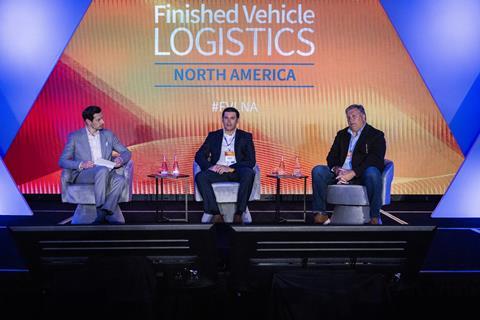
While there is demand in the Mexican market for EVs, charging infrastructure is “still not ready”, so Gamboa said the OEM will work with the authorities to develop that further.
But a problem specifically important in Mexico is battery degradation. He said: “Especially with the heat and weather conditions in Mexico, we really need to control that in regards of temperature. We’re talking about hazardous materials and safety regulations which are new, and we need to foresee what exactly those will be.”
But a big benefit that BMW has is in the best practice shared from the wider BMW Group. “Fortunately, we are getting a lot of benefits from the experience we’re having in our other plant,s especially in Europe, where we’re getting ready to finalise the construction of our newest plant in Hungary,” he said. “We have already started having some discussions about infrastructure and what to expect regarding the network, what we need to develop, what to expect regarding legal requirements, how to set up our plant in regards of charging equipment and working with our partners at the ports on this to make it feasible and to be aligned on quality requirements as well as legal requirements.”
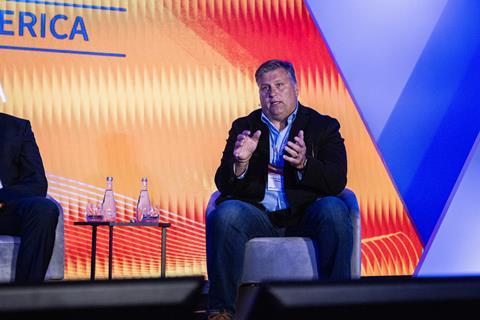
Similarly, Nissan is adapting its network in Mexico to keep up with fluctuating consumer demands. Steve Jernigan, senior director of supply chain management for Nissan North America, said that some of the biggest supply chain challenges in Mexico at the moment involve labour. “Skill sets have changed and there are shortages in skilled drivers, especially haulaway drivers,” Jernigan said.
He added that investment is lacking in Mexico due to its later recovery from Covid, so there are shortages in equipment in rail and haulaway that the OEM needs to work around. He said that to overcome these issues, Nissan needs to remain flexible to adapt to changing external factors.
Watch the Red Sofa: Nissan’s Steve Jernigan on network improvements in Mexico
“Around 35-40% of our production in Mexico is for the US, and interest rates are high and cost of vehicles are high, so there’s a shift to sedans which we produce in Mexico as well as a small crossovers,” he said. “So you quickly see things pivot from high trim level SUVs to affordable cars with interest rates, and it stacks onto the problems you already have in Mexico and really drives shifts in volume. The market shifts quickly, and whenever interest rates shift or elections happen, we’ll probably continue to see those knobs change.”
To solve these issues, Jernigan said that Nissan has made investments across intermodal FVL in North America to ensure deliveries despite disruptions.
“Anything we can do to move a car, we’ve done it,” Jernigan said. “We’ve moved from 80% rail to dedicated vessel which we’re managing now on a monthly basis. We’re not vessel experts, we build cars. We’re putting cars in containers. We’ve driven haulaway trucks from Mexico to the us in Texas and other areas delivering vehicles.”
Automotive Logistics and Supply Chain Mexico 2024 will take place 12-14 November in Marrquis Reforma Hotel, Mexico City, where experts will gather to discuss breaking boundaries and transforming logistics to deliver nearshoring’s potential.
Register for ALSC Mexico 2024 here
Finished Vehicle Logistics North America 2024 took place 21-23 May in Waterfront Beach Restort, Huntington Beach, California.
At the event, experts addressed the key issues and opportunities in the FVL sector including combating the capacity crunch across rail, road and sea, harnessing data and analytics to make real-time improvements to network planning and operations, turning EV planning into reality, balancing investment and partnerships for decarbonisation strategies and re-imagining partnerships across the vehicle logistics supply chain.
Topics
- Battery Supply Chain
- BMW
- Digitalisation
- Editor's pick
- Electric Vehicles
- features
- Features
- Finished Vehicle Logistics
- Finished Vehicle Logistics
- FVLNA 24
- Inventory management
- Logistics service provider
- Materials handling
- Mexico
- Nearshoring
- Nissan
- North America
- People
- Policy and regulation
- Ports and processors
- Purchasing
- Rail
- Road
- Shipping
- Suppliers
- Supply Chain Planning
- Sustainability
- Trade & Customs

























![Global[1]](https://d3n5uof8vony13.cloudfront.net/Pictures/web/a/d/s/global1_726550.svgz)




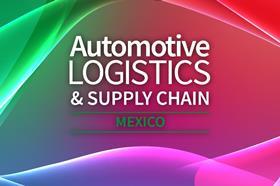
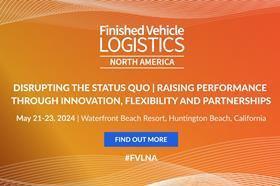
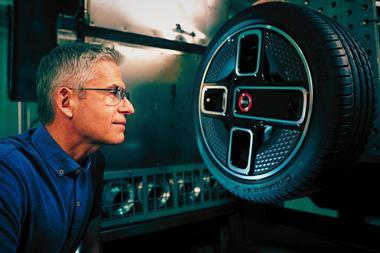
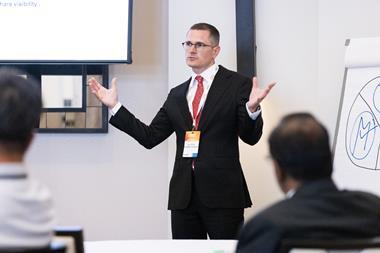







No comments yet